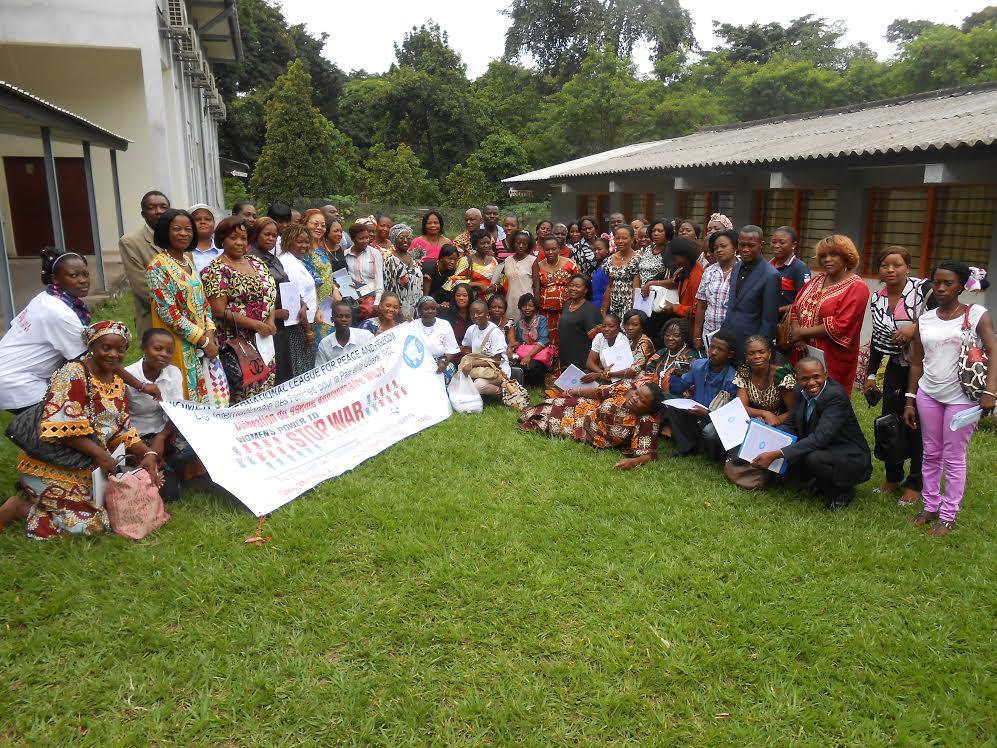Case Study: Corporations, Peace and Gender Equality in the Democratic Republic of Congo (DRC)
By Marina Kumskova
A 2015 group picture of the Women’s International League for Peace and Freedom (WILPF) DRC. (Photo: WILPF DRC)
On 31 December 2016 the government and opposition parties in the Democratic Republic of the Congo (DRC) have reached an agreement for 2017 elections. This agreement is a significant step towards a peacefully managed transition consistent with the principles of social justice and equality. In fact, conflict over power in the DRC has been an ongoing source of instability for a long time, significantly affecting human rights situation in the country. This is especially the case for marginalised groups in societies, including women. In this vein, the United Nations Security Council has adopted a Presidential Statement on the situation in the Democratic Republic of Congo (DRC) stressing the importance of women’s inclusion in the follow up and implementation of this agreement.
The Women’s International League for Peace and Freedom (WILPF) in DRC has long called for strengthening women's meaningful participation and reducing militarism and arms to prevent violence against women and promote peace. Women peacemakers must be central to the transition process. Most recently, WILPF DRC has examined the impact of militarism in the context of transnational corporations (TNCs) on women through their report entitled “Life at the Bottom of the Chain: Women and Artisanal Mines in DRC” (2016). This report brings to light the human rights violations related to the activities of militarised supply chains and business enterprises that rise in the context of current conflict over power and their relationship to the root causes of instability in the country.
Find a 2017 UN Security Council’s Presidential Statement concerning the situation in the DRC here
Find WILPF’s case study on corporations, peace and gender equality in the DRC here

